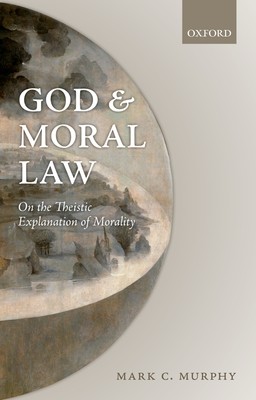
- We will send in 10–14 business days.
- Author: Mark C Murphy
- Publisher: Oxford University Press, USA
- ISBN-10: 0199693668
- ISBN-13: 9780199693665
- Format: 14 x 21.6 x 2 cm, hardcover
- Language: English
- SAVE -10% with code: EXTRA
Reviews
Description
Does God's existence make a difference to how we explain morality? Mark C. Murphy critiques the two dominant theistic accounts of morality--natural law theory and divine command theory--and presents a novel third view. He argues that we can value natural facts about humans and their good, while keeping God at the centre of our moral explanations.
The characteristic methodology of theistic ethics is to proceed by asking whether there are features of moral norms that can be adequately explained only if we hold that such norms have some sort of theistic foundation. But this methodology, fruitful as it has been, is one-sided. God and Moral Law proceeds not from the side of the moral norms, so to speak, but from the God side of things: what sort of explanatory relationship should we expect between God and moral norms given the existence of the God of orthodox theism? Mark C. Murphy asks whether the conception of God in orthodox theism as an absolutely perfect being militates in favor of a particular view of the explanation of morality by appeal to theistic facts. He puts this methodology to work and shows that, surprisingly, natural law theory and divine command theory fail to offer the sort of explanation of morality that we would expect given the existence of the God of orthodox theism. Drawing on the discussion of a structurallysimilar problem--that of the relationship between God and the laws of nature--Murphy articulates his new account of the relationship between God and morality, one in which facts about God and facts about nature cooperate in the explanation of moral law.
EXTRA 10 % discount with code: EXTRA
The promotion ends in 21d.02:20:22
The discount code is valid when purchasing from 10 €. Discounts do not stack.
- Author: Mark C Murphy
- Publisher: Oxford University Press, USA
- ISBN-10: 0199693668
- ISBN-13: 9780199693665
- Format: 14 x 21.6 x 2 cm, hardcover
- Language: English English
Does God's existence make a difference to how we explain morality? Mark C. Murphy critiques the two dominant theistic accounts of morality--natural law theory and divine command theory--and presents a novel third view. He argues that we can value natural facts about humans and their good, while keeping God at the centre of our moral explanations.
The characteristic methodology of theistic ethics is to proceed by asking whether there are features of moral norms that can be adequately explained only if we hold that such norms have some sort of theistic foundation. But this methodology, fruitful as it has been, is one-sided. God and Moral Law proceeds not from the side of the moral norms, so to speak, but from the God side of things: what sort of explanatory relationship should we expect between God and moral norms given the existence of the God of orthodox theism? Mark C. Murphy asks whether the conception of God in orthodox theism as an absolutely perfect being militates in favor of a particular view of the explanation of morality by appeal to theistic facts. He puts this methodology to work and shows that, surprisingly, natural law theory and divine command theory fail to offer the sort of explanation of morality that we would expect given the existence of the God of orthodox theism. Drawing on the discussion of a structurallysimilar problem--that of the relationship between God and the laws of nature--Murphy articulates his new account of the relationship between God and morality, one in which facts about God and facts about nature cooperate in the explanation of moral law.


Reviews